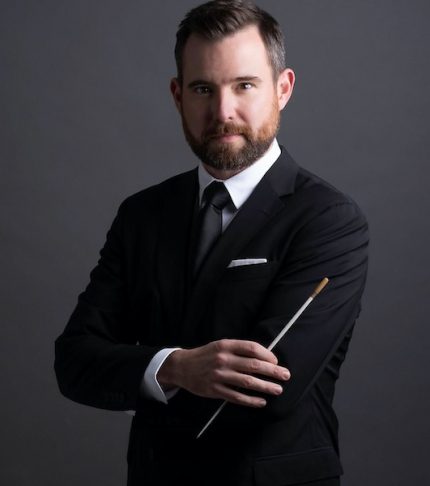Enlightenment Festival concludes with a charming, intimate Handel rarity

Seraphic Fire’s Enlightenment Festival has spotlighted the lighter works of Bach, Haydn and Handel, in contrast to their large scale, profound creations.
In 1716 Handel conceived his pastoral opera Acis and Galatea as a court entertainment for the nobility and his patrons, later making numerous revisions. This unpretentious, delightful score was the perfect conclusion to the chamber choir’s ambitious series. On Friday night at First United Methodist Church in Coral Gables, Patrick Dupré Quigley led an inspired performance, fielding an excellent cast.
The tale of love between the semi-divine nymph Galatea and the shepherd Acis turns tragic with the arrival of an evil monster who kills Acis. Utilizing her divine powers, Galatea turns Acis into a fountain, the flowing waters making him immortal. Handel burnished that simple plot with a series of arias, duets and choruses that brim with sprightly and sensual melodies. The accompanying instrumental invention is no less varied and imaginative.
Leading a six-member period instrument ensemble, Quigley conducted a lithely paced and deftly balanced performance. With the small number of musicians, individual instrumental parts were clear and striking; the sparkling sound of Geoffrey Burgess’s recorder was particularly enticing. After ten days of solo vocal and instrumental performances in this festival, it was great to hear the well-blended chamber choir sing the joyous opening chorus with the crisp articulation that has become a Seraphic Fire trademark.
The four principal roles require voices that encompass strength, beauty and agility as well as affinity for the niceties of Baroque style. From her opening recitative, Kathryn Mueller spun phrases in the top register winningly. With the recorder obligato conveying the flow of water from the fountain , Mueller’s silvery high tones and finely gauged dynamic range made Galatea’s final aria “Heart, the seat of soft delight” soar.” It was wonderful to hear this talented soprano again after several seasons’ absence.
Steven Soph’s refined lyric instrument has been a continual strong point of the choir’s programs and the tenor was outstanding in the demanding role of Acis. Whether spinning coloratura in “Where shall I seek the charming fair,” heroic roulades for “Love sounds the alarm” or soft, sweet tones in “Love in her eyes sits playing,” Soph was every inch the reckless lover. The contrasted timbres of Mueller and Soph’s voices melded in the exquisite duet “Happy, happy we” that concludes Act I.
The role of the monster Polyphemus requires a bass with a wide range from the lowest depth to high leaping trills and flourishes. James K. Bass was fully equal to the challenge. “O ruddier than the cherry,” the opera’s most famous aria, was sung with agile control, the rolling low notes clean and distinct.. He seethed with anger in the interjections of “Torture, Fury, Rage” in the lovers’ duet “The flocks shall leave the mountain” before slaying Acis. Bass vocally portrayed the villain with stylish declamation rather than bluster.
As Damon, Acis’ friend who attempts to save him from danger, Brad Diamond was a tower of strength. With excellent diction, “Would you gain the tender creature” was rendered with dulcet grace and his powerful high notes vaulted “Shepherd, what art thou pursuing” through the sanctuary.
The chorus of pain and mourning after Acis’ death was an emotional declaration of communal grief, expertly coordinated by Quigley, while the finale, “Galatea, dry thy tears,” ended then opera joyously.
This gentle confection is unique in Handel’s output. There are two remaining performances and Baroque and opera aficionados should not miss the rare opportunity to hear this gem.
Seraphic Fire repeats Acis and Galatea 7:30 p.m. Saturday at All Saints Episcopal Church in Fort Lauderdale and 4 p.m. Sunday at Vanderbilt Presbyterian Church in Naples. Seraphicfire.org
Posted in Performances
Leave a Comment
Sat Feb 22, 2020
at 2:52 pm
No Comments


